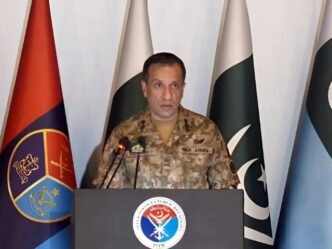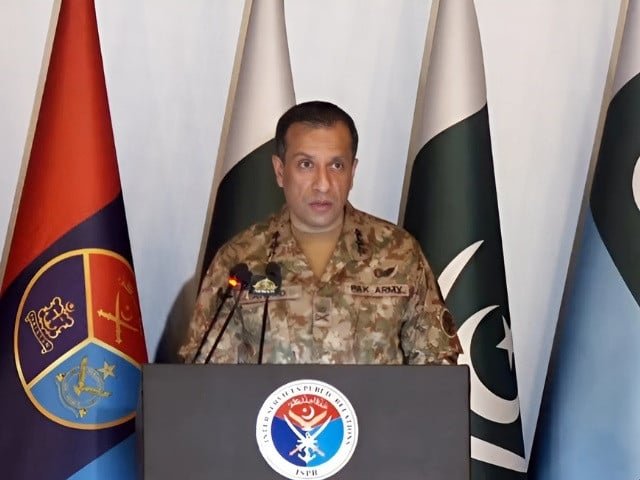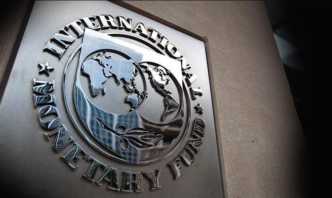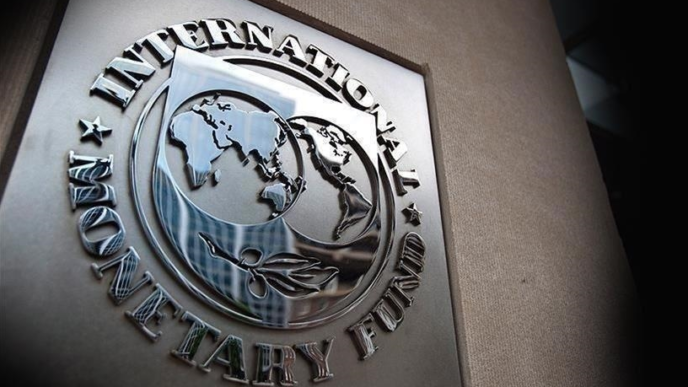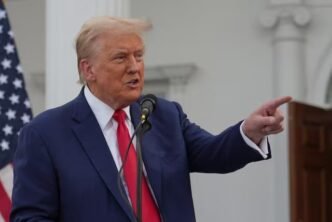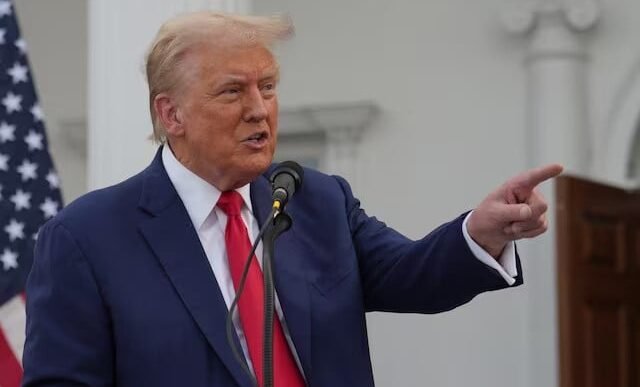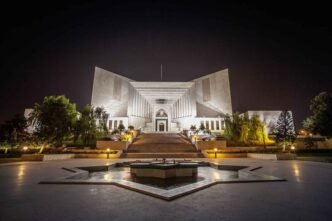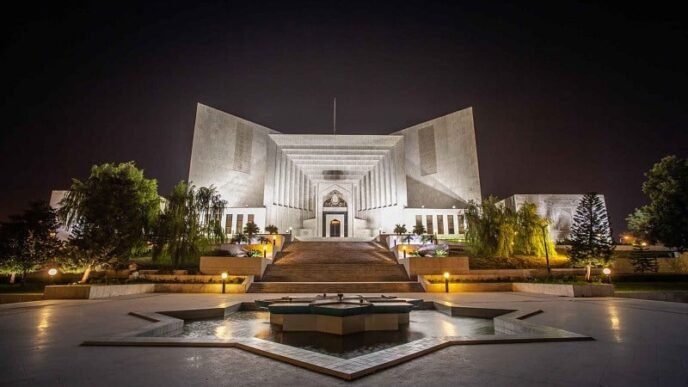ISLAMABAD:
Declaring that the army has no political agenda nor it supports or opposes any party, the chief military spokesperson on Thursday hinted at the possibility of former prime minister Imran Khan facing a trial under the Army Act in a case pertaining to former ISI chief Lt General (retd) Faiz Hameed.
Since the arrest of Gen Faiz, Imran Khan has expressed concerns that he might be implicated. The former prime minister also moved the Islamabad High Court, seeking an order to prevent his possible military trial.
During a press conference in Rawalpindi, when journalist asked about the concerns of PTI leadership, DG ISPR Lt General Ahmed Sharif Chaudhry replied: “The matter is sub judice, but I will say that according to military law, if any person uses individuals under the Army Act for their personal objectives, the law will take its own course.”
Observers believe that the DG ISPR’s calculated remarks suggested that the jailed PTI founder could be implicated in the ongoing court martial proceedings against former ISI chief General Faiz.
The former spymaster has been facing allegations ranging from misuse of authority to corruption and from violating the military discipline to colluding with a political party to undermine the institution of the army after retirement.
Faiz was considered close to Imran Khan, something that was a source of tension between his government and the GHQ. Imran has repeatedly stated that he wanted Gen Faiz to continue as DG ISI because of the evolving situation in neighbouring Afghanistan. However, then Army Chief General Qamar Javed Bajwa was adamant that Faiz’s transfer from the ISI was unavoidable given the internal transfer/posting process within the army.
Khan later claimed that Gen Faiz was removed as DG ISI at the behest of former prime minister Nawaz Sharif. Faiz at one point was the strong contender for the post of army chief. Rumours have it that when he was overlooked for the coveted slot at that time he started hatching a conspiracy along with Khan to undermine the current military leadership. Although, military has not said it explicitly, some reports link Gen Faiz with May 9 violent protests including attacks on the military installations.
Thursday’s press conference of DG ISPR dropped many hints that one of the main charges against Gen Faiz was that he used his position for personal and political gains.
General Sharif made it clear that the Pakistan Army is a national institution with no political agenda. He said there had been complete consensus within the institution that the army would stay away from political matters.
He insisted that the army as an institution plays its role with elected government as per the Constitution and law. “The army neither opposes nor favours any political party,” he insisted.
He said court martial proceedings were initiated against Faiz Hameed after multiple violations of the Pakistan Army Act were proven.
He clarified that in this case, anyone involved, regardless of their rank or status, will face action.
He emphasised the military’s belief in self-accountability, noting that the army’s system of accountability is comprehensive, robust, and “time-tested,” based on solid evidence rather than mere accusations.
He said that when laws and regulations in the army are violated, the automatic system of accountability is triggered, and the concerned officers are given all legal rights, including choosing their own lawyer.
“We hope that such self-accountability will also encourage other institutions,” DG ISPR said.
He highlighted that Pakistan’s war against terrorism is being fought under an approved and integrated strategy, with input from various political parties, stakeholders, and governments.
He mentioned that over the past two decades, more than 46,000 square kilometers of land have been cleared of terrorists during the war on terror.
He further stated that there is no area in Pakistan where terrorists hold sway, as the “clear and hold” phases have been successfully completed.
He condemned the targeting of unarmed civilians, describing it as a reflection of the terrorists’ mindset and desperation.
“We are aware of the feelings of deprivation and the perception of state oppression in Balochistan, which certain external forces manipulate for negative purposes,” he said. “These forces aim to disrupt the ongoing development and welfare projects in Balochistan through fear and intimidation.”
The DG ISPR also sent a strong message to terrorists, stating, “The state will deal with the enemies of citizens’ lives, property, and progress with an iron hand.”
He further emphasised that Balochistan is the heart and soul of Pakistan. “There is hardly any officer in the army who has not served there. The region’s large area and sparse population create challenges, affecting not just the Baloch, but also Pashtuns and others.”
According to him, a negative narrative is being built about the lack of real representation in Baluchistan, and the rhetoric is rooted in a sense of deprivation.
He said one of the main reasons behind the surge in terrorist attacks was the facilitation and safe havens available to the banned terrorist outfits inside Afghanistan.
He said the government of Pakistan is in contact with the interim Afghan government.
“Despite all these issues, we have very good relations with Afghanistan, and those who think they can create a rift between the two brotherly neighbouring countries are mistaken,” he stressed in an apparent change of strategy by Pakistan to woo the Afghan Taliban on the issue of banned TTP.
The DG ISPR made it clear that the fight against terrorism is continuing under an approved strategy. The Pakistan Army’s task is to clear the areas affected by terrorism and ensure security there, so that a conducive environment for economic and social development can be provided.
The DG ISPR further added that the Pakistan Army has fulfilled its responsibility in clearing the areas and ensuring security, and is now conducting more than 100 intelligence-based operations on a daily basis.
